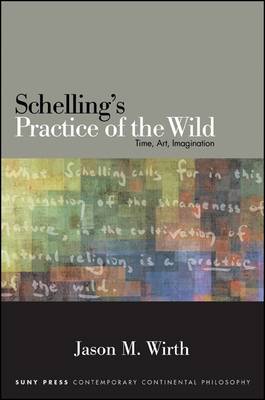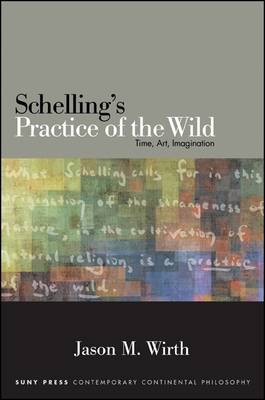
Door een staking bij bpost kan je online bestelling op dit moment iets langer onderweg zijn dan voorzien. Dringend iets nodig? Onze winkels ontvangen jou met open armen!
- Afhalen na 1 uur in een winkel met voorraad
- Gratis thuislevering in België vanaf € 30
- Ruim aanbod met 7 miljoen producten
Door een staking bij bpost kan je online bestelling op dit moment iets langer onderweg zijn dan voorzien. Dringend iets nodig? Onze winkels ontvangen jou met open armen!
- Afhalen na 1 uur in een winkel met voorraad
- Gratis thuislevering in België vanaf € 30
- Ruim aanbod met 7 miljoen producten
Zoeken
€ 43,95
+ 87 punten
Uitvoering
Omschrijving
The last two decades have seen a renaissance and reappraisal of Schelling's remarkable body of philosophical work, moving beyond explications and historical study to begin thinking with and through Schelling, exploring and developing the fundamental issues at stake in his thought and their contemporary relevance. In this book, Jason M. Wirth seeks to engage Schelling's work concerning the philosophical problem of the relationship of time and the imagination, calling this relationship Schelling's practice of the wild. Focusing on the questions of nature, art, philosophical religion (mythology and revelation), and history, Wirth argues that at the heart of Schelling's work is a radical philosophical and religious ecology. He develops this theme not only through close readings of Schelling's texts, but also by bringing them into dialogue with thinkers as diverse as Deleuze, Nietzsche, Melville, Musil, and many others. The book also features the first appearance in English translation of Schelling's famous letter to Eschenmayer regarding the Freedom essay.
Specificaties
Betrokkenen
- Auteur(s):
- Uitgeverij:
Inhoud
- Aantal bladzijden:
- 298
- Taal:
- Engels
- Reeks:
Eigenschappen
- Productcode (EAN):
- 9781438456782
- Verschijningsdatum:
- 2/07/2016
- Uitvoering:
- Paperback
- Formaat:
- Trade paperback (VS)
- Afmetingen:
- 155 mm x 226 mm
- Gewicht:
- 408 g

Alleen bij Standaard Boekhandel
+ 87 punten op je klantenkaart van Standaard Boekhandel
Beoordelingen
We publiceren alleen reviews die voldoen aan de voorwaarden voor reviews. Bekijk onze voorwaarden voor reviews.











